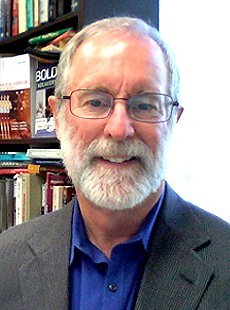
Clinical Interests
From a clinical perspective, the Ilizarov technique is used to lengthen long bones and salvaging limb length following traumatic injuries. While previous studies have exclusively focused upon issues related to bone, very little is known about the response of skeletal muscle, connective tissue, nerve, or vessels to distraction. The ability to lengthen bone using the Ilizarov technique is thought to be limited by the soft tissues adjacent to the bone defect. As a result of constant bone lengthening, skeletal muscles are also under constant stretch.
Currently, it is not known what effect bone lengthening has on the contractile, biochemical, and molecular properties of skeletal muscle. As a result, we have developed a rodent Ilizarov model that simulates that used in humans. Our current interests are to examine the adaptability of the flexors and extensors of a joint to constant stretch. By developing an understanding of the adaptation of skeletal muscle to the Ilizarov technique, more optimal methods of bone lengthening should be developed.
Research Interests
Dr. Caiozzo’s current research interests are focused on 3 key aspects of skeletal muscle: i) the mechanistic role of contractile and regulatory proteins in muscle mechanics; ii) the mechanistic basis of muscle plasticity; and iii) the application of the first two pursuits to clinically relevant pathologies.
Regarding the first area, previous studies conducted in his laboratory have focused upon the relationship between myosin isoforms and maximal shortening velocity. Current studies are directed at a more complete understanding of the role of myosin using whole muscle, single motor unit, and single fiber studies. Using the novel work loop technique, he has been able to develop a model that describes the role of activation and relaxation processes in limiting the mechanical work produced by skeletal muscle during repetitive contractions.
These studies have shown that relaxation plays a major role in limiting the amount of mechanical work that can be produced by skeletal muscle, and that relaxation is length and strain dependent. Future studies with single fibers will specifically focus upon the role of myosin, troponin-C , and the sarcoplasmic reticulum in the relaxation process by using caged chelators of calcium that are activated by laser flash photolysis.
Dr. Caiozzo is also involved with the UC Irvine Space Cycle.
Background
Dr. Caiozzo received his undergraduate degree from California State University, Long Beach and his Master of Science in Kinesiology from UCLA. He completed his doctorate degree in cell biology at the University of California, Irvine.
Dr. Caiozzo frequently serves on study sections at NIH. This past year Dr. Caiozzo was a member of the NIH NCRR Site Visit Team, and participated in the development of the 5-year strategic plan for the NIH NCAM. Dr. Caiozzo also currently serves as the Associate Team Leader for the Physical Fitness, Nutrition, and Rehabilitation Team of NASA’s National Space Biology Research Institute. Also, he is the Chair of the Molecular and Cellular Regulatory Mechanisms Interest Group of the American College of Sports Medicine.
Dr. Caiozzo serves on a number of University and College of Medicine Committees. Dr. Caiozzo is a member of the Irvine Academic Senate. Additionally, he is a member of the GCRC Advisory Committee, and is the Chair of the GCRC Executive Advisory Committee. Dr. Caiozzo also serves on the Mentor Committee in the College of Medicine. Dr. Caiozzo’s primary academic appointment is in the Department of Orthopaedics, and he holds joint appointments with the Departments of Physiology and Biophysics, Otolaryngology, and Community and Environment Medicine.
